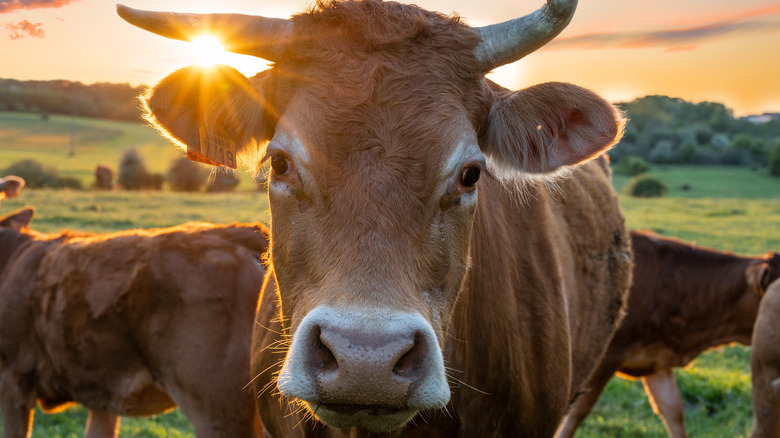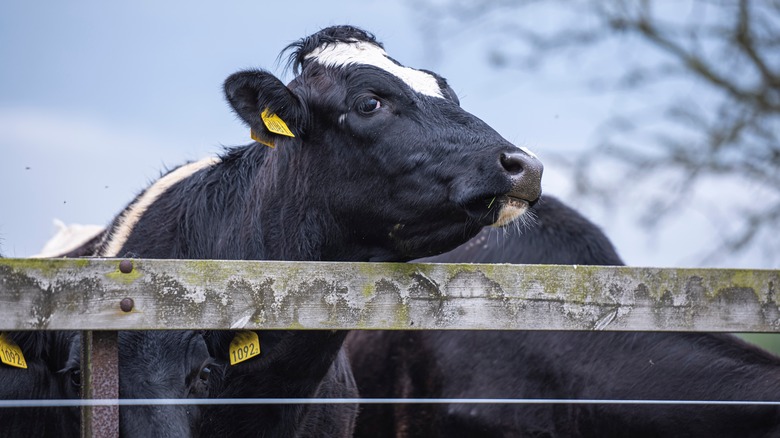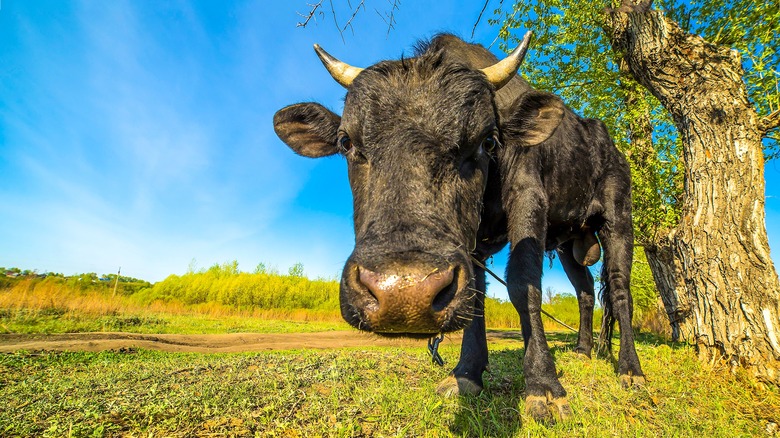The Truth Behind Why Some People In India Put Cow Dung On Their Walls
When we talk about poop in the animal kingdom, we almost have to bring up sloths. According to The Sloth Conservation Foundation, these slow-moving creatures are some of the animal kingdom's most interesting defecators. They poo just once a week, in the case of three-fingered and two-fingered sloths, and they will always make their painstaking way down to the ground to do so. This is a real anomaly, since they are animals that otherwise remain in the trees and away from dangers at absolutely all times.
Poo from the humble cow is also deceptively fascinating. Arla Foods is harnessing the potential of cow pats to provide energy in the United Kingdom. "Cow poo can be processed into biogas, which can then be used to create electricity. This process also creates a natural fertilizer as a by-product, helping to nourish the soil and reduce emissions," the company reports, boasting that each of their cows produces enough droppings to potentially provide power for three households in the U.K. Meanwhile, in India, cow dung has an important role to play, too: It's placed on the walls of some homes.
The uses of cow poop
According to Britannica, India has an estimated population of more than 1.3 billion people, making it the second-most populous country on the planet (surpassed only by China). Per CNN, the United Nations projects that India will take the number one spot in 2023.
These remarkable numbers represent an enormous logistical problem. How to provide energy for the people of India? The India Electricity Outlook reported in 2021 that the nation's electricity needs are expected to rise at an annual rate of 5% up to 2040. Such power, sadly, will not be available to everyone, but since the dawn of humanity, we've devised all manner of creative ways to cook food and provide heat. Fire, naturally, has been just one, and burning cow dung has proven to be a common way of doing just that in India.
Deepak Singh, via NPR, writes that their father often spoke of his life growing up in the village of Dev Gaon. On trips to the village, per Singh, their grandmother owned a mud house: "She had a U-shaped stove that was made of mud and nothing else. She grabbed a stack of dried cow dung cakes from a much larger pile sitting in one corner of the courtyard and set them in her kitchen." These cakes, per Singh, were added to the stove, along with wood, to create a roaring fire for cooking.
Mail order cow dung
In February 2022, The Times Of India reported that Banaras Hindu University began teaching the delicate art of making upala, or "cow dung cakes." Professor Kaushal Kishor Mishra demonstrated the process, training others in the art, before reportedly expounding on the uses of the upala. "These cow dung cakes could be used for performing havan, puja and as a fuel for cooking food," the outlet reported. "It will also help in increasing the income of the farmers."
Deepak Singh, via NPR, reports that cow poop would be collected (from their grandmother's own cows, in this particular case) and balled up with clay. They required around three days to dry out, and there was a novel way of achieving this: They were stuck to the walls of homes, by hand.
An upala has a range of uses, Singh goes on: "in the Hindu religion it is used in fires for religious rituals such as the purification of a house or a house-warming ceremony. Since cows are considered to be holy by Hindus, their dung is also sacred." The items are also available on Amazon in India, according to the report. "I ordered six pieces. It cost me 236 rupees, about $4," the writer stated in 2016.


